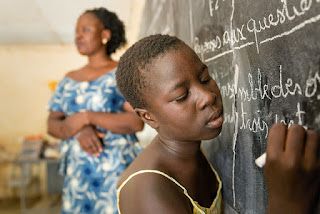Women in the arts and culture
Throughout history, women have been essential in influencing society's arts and culture. Women have made contributions to a wide range of artistic fields, including painting, sculpture, music, dance, literature, and film, despite encountering many obstacles, including gender bias and discrimination.
The myth that women are less talented or imaginative than males has been a significant obstacle for women in the arts. Women were not permitted to study art or engage in the creative industries for centuries, thus their contributions were frequently disregarded or underappreciated. Women have persevered and made important contributions to the arts despite these challenges.
Women artists like Frida Kahlo, Mary Cassatt, and Georgia O'Keeffe have created some of the most recognizable and significant works of art throughout history in the medium of painting. Barbara Hepworth, Louise Bourgeois, and Niki de Saint Phalle are a few examples of women who have made significant contributions to sculpture by pushing the boundaries of form and material and questioning preconceived preconceptions about the discipline.
Women who have made significant contributions to classical music include Clara Schumann, Fanny Mendelssohn, and Ethel Smyth, while women who have changed popular music include Billie Holiday, Aretha Franklin, and Beyoncé. Women in dance have made significant contributions to modern and ballet dance, including Martha Graham, Isadora Duncan, and Misty Copeland.
With authors like Virginia Woolf, Toni Morrison, Maya Angelou, and Chimamanda Ngozi Adichie defying conventional narratives and delving into themes of gender, race, and social justice, women have made substantial literary contributions to poetry, fiction, and non-fiction. Women have broken down boundaries in a male-dominated field by directing critically acclaimed and financially successful movies, such as Agnes Varda, Jane Campion, and Ava DuVernay.
Notwithstanding these noteworthy accomplishments, women still face obstacles in the arts and culture, including unequal representation, income inequality, and a lack of opportunity for leadership roles. To change the debate and advance gender equality in these professions, women's contributions to the arts and culture are however becoming more widely acknowledged.
In conclusion, women have consistently contributed significantly to the arts and culture, defying gender norms and eradicating barriers. While there is still a long way to go before gender equality is achieved in these professions, the increased appreciation of women's accomplishments is a positive development that is encouraging the next generation of female artists and cultural influencers.




Comments
Post a Comment